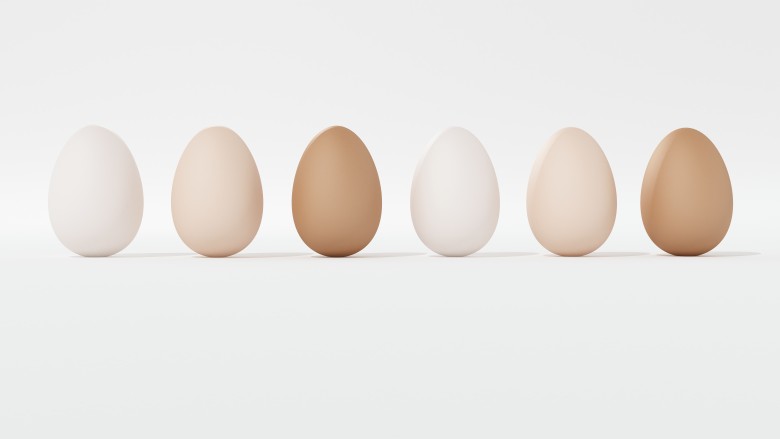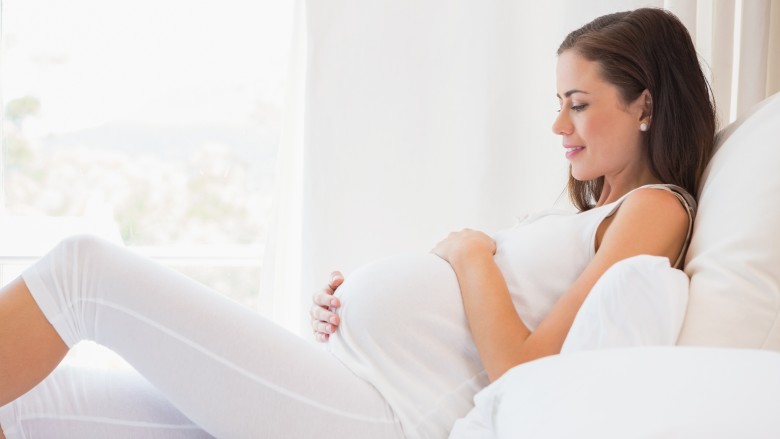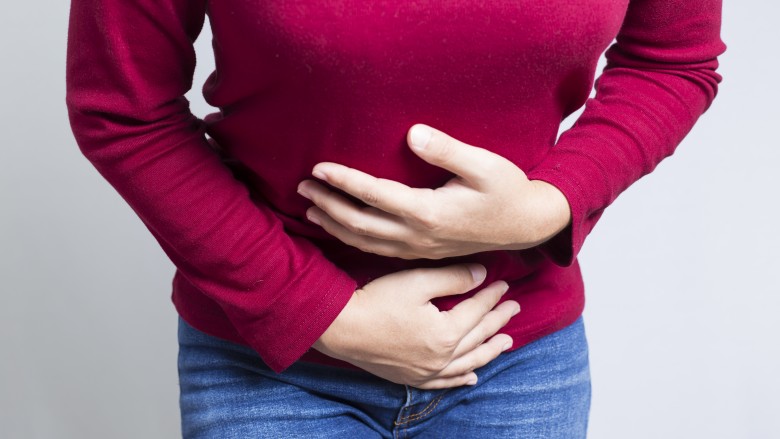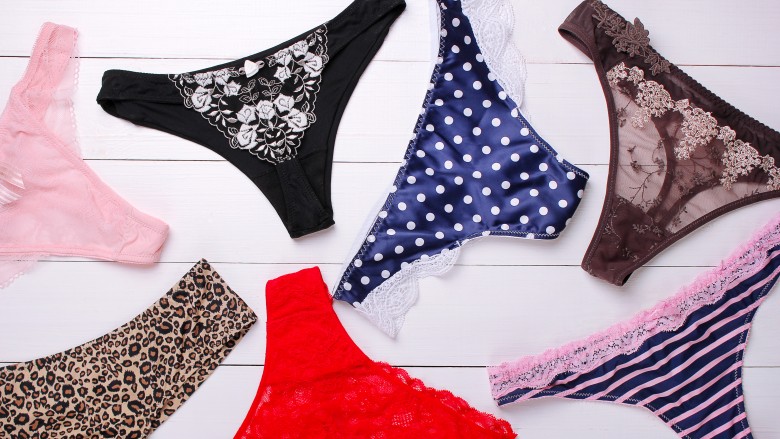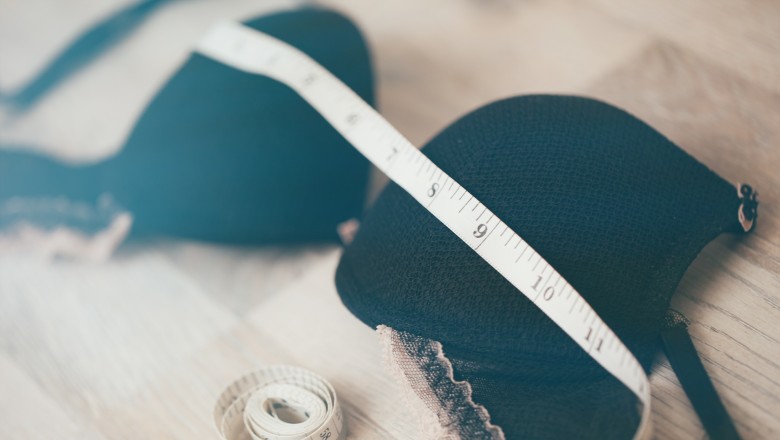Things That Only Happen When You're Ovulating
Most of us are somewhat familiar with what happens in our bodies when we ovulate. Ovulation is the time in your cycle when you could become pregnant. However, there's a lot going on during that short window, and some of the body processes are surprising. "Some women are aware of these changes but overall, most women are unaware of what actually happens to their body during this time," Dr. Deirdre Bentley at Jean Hailes for Women's Health told The Huffington Post Australia. From changes in your taste in men to the way you vote, here are 11 things that happen during ovulation.
What is ovulation?
Ovulation usually happens about halfway through your menstrual cycle, and it lasts only 12 to 24 hours. We're each born with about 400,000 eggs per ovary, and that number drops as we age. When you ovulate, your body releases a mature egg into the fallopian tube. It is then ready to be fertilized by your partner's sperm.
Most women ovulate every month. As we age and our eggs decrease, the chances of becoming pregnant get a little trickier. As a woman in her 30s, it's super depressing to hear that by the time we turn 37, our egg number has dropped from our original 800,000 to a respectable 25,000. However, if you're trying to conceive right now, remember: it just takes one!
You get pregnant!
Despite what your high school health teacher told you, it is only possible to get pregnant while you're ovulating. If you're in your 20s or early 30s, you have about a 20 percent chance of conceiving each time you ovulate. By the time you reach 40, that number drops to 5 percent.
If you are ready to welcome a new baby into your life, pay attention to the changes in your body during ovulation. This will help you know when your most fertile time is.
You may have abdominal cramps
Those annoying period cramps don't just happen during menstruation. About 20 percent of women notice cramping or pain in their lower abdomens during ovulation. This is probably due to the fact that your body is releasing an egg into a fallopian tube. You may notice the cramping on just one side of your abdomen (the side you're ovulating on). These cramps should be mild and go away after a day.
Your gaydar is on point
You may be better able to find a suitable mate during ovulation. First, you have to make sure he's into you. A study in Psychological Science asked female college students to look at photos of 80 men and determine their sexual orientations. The women who were ovulating were more accurate in determining who was straight and who was gay. "Past studies have also shown that women's preferences for men's faces varies depending on where they are in their cycle, so it makes sense that their 'gaydar' might vary with these hormonal changes as well," study co-author Nicholas Rule, PhD, associate professor of psychology at the University of Toronto, told Health. So if you're going out for the night with your friends, trust your gut when you're talking with the guys at the bar.
You'll heat up
Our cycles and their symptoms are ruled by hormones. During the first half of our cycle, estrogen runs the show, but once ovulation hits, it's all about the progesterone. That rise in progesterone causes your basal body temperature (BBT) to increase. Studies have shown that you may even feel flushed and have slightly redder cheeks when you're ovulating. Many women trying to conceive measure their BBTs every day to be able to note that increase.
And it's not just your BBT heating things up. Ovulation also increases libido, so you may notice you're feeling all hot and bothered about midway through your cycle. Schedule a date night and take advantage of your frisky feelings!
Your cervix changes
Your body is designed get pregnant, and each small change during ovulation makes it just a little bit easier for sperm to make their way to that egg of yours. Your cervix, between the vagina and the uterus, is usually hard and closed off. However, during that ovulation window, it softens and even opens up a little. Most women don't notice a difference, but some can feel the change.
Your cervical mucus changes
If you've been paying attention to what's in your undies, you may notice that your cervical mucus changes when you ovulate. Around ovulation, the cervical mucus becomes thin, clear, and slippery. It almost has the same appearance as egg whites.
This change is another way Mother Nature helps us get pregnant. Sperm need a friendly, moist environment to survive and fertilize your egg. This thin, slippery cervical mucus is the perfect welcome wagon. As my favorite nursing school professor so eloquently put it, "If you're wet, a baby you'll get; if you're dry, the sperm will die." You're welcome.
You're feeling yourself
During ovulation, many women are feeling pretty sexy. In addition to your libido increasing, you'll naturally spend a little more time on your appearance. A University of Texas study found that women tend to dress in a more revealing way when they're ovulating. A similar study at UCLA found that ovulating women tend to put more effort into "looking attractive."
While you may not notice it, ovulation even affects our voices. Ovulating women have slightly higher pitched voices than they normally would. This may be due to the fact that higher voices are a sign of youth, and young women are fertile. It's just our body's way of helping along the process of attracting a mate and becoming pregnant. In past studies, men have rated women's voices as more attractive when they're ovulating and speaking in slightly higher pitches. Breaking news: men are attracted to youth.
You have a super sense of smell
Around the time of ovulation, you may notice that your coworker's tuna salad sandwich is especially offensive. When we're most fertile, our bodies want to help us conceive. That heightened sense of smell helps you smell your partner's pheromones. Smelling his sweet androstenone will make you feel more attracted to him and may help you find a mate during this time.
You keep your options open
Because ovulation is our fertile time, it makes sense that we'd be more open to dating at that time, since our bodies are looking for a mate. However, that desire to play the field doesn't stop with potential partners. You could be making different choices in every area of your life. Ovulating women are more likely to try a new product when shopping. "We didn't see this among women who were already in a committed relationship, who were more likely to say they were sticking with both the same partner and brands," study author Kristina Durante, PhD, associate professor of marketing at Rutgers Business School, told Health.
You may even play the political field. No, I don't mean you'll be more attracted to politicians, but you could vote differently. In 2012, single women who were ovulating were more likely to vote for Barack Obama, while ovulating women in committed relationships tended to go for Mitt Romney. Study authors speculated that single women were more likely to relax their views about religion and politics during this time, where attached women were feeling more conservative.
Your breasts are sore
Ovulation is a busy time for your hormones. As they rush in and get to work, you may notice some breast and nipple sensitivity. You could also have some soreness and tenderness. Taking an over-the-counter pain medication like Ibuprofen can help those symptoms.
You feel healthier
Perhaps it's just your body's way of making sure that you feel good enough to have sex, but you may notice that you feel healthier when you ovulate. A Norwegian study found that women's asthma symptoms improve during and around ovulation.
Ovulation is also a great time to have your annual physical exam. Not only will you be feeling good, your labs will look better as well. According to the National Institutes of Health, our cholesterol levels start to drop during ovulation.
You won't be a girl's girl
When we're ovulating, we may not be the best friend in the world. Ovulating women tend to prefer men over women and even feel more competitive with fellow women. In a 2014 study, a group of women were given a sum of money and asked to share with the others. The ones who were ovulating only shared half as much as their non-ovulating buds. "This is consistent with other research that's been done on animals," says Kristina Durante. "Female monkeys, for example, go all Real Housewives with one another when they're at their most fertile."
However, there is one gal pal you'll be favoring over the guys. Ovulating women are more likely to talk with their mothers and for longer durations during this window. As for the dads, sorry, pops. We tend to speak to our fathers for only half the amount of time.
How to survive
With our hormones going crazy, it can be easy to feel a little off during ovulation. It's natural to not feel like yourself when you're suddenly experiencing abdominal cramps, breast soreness, and a repulsion to your dad. Just remember that the symptoms should only last a day, and try to focus on the good ones.
Throw on your sexiest dress and plan a night out with your partner. Enjoy the extra attention and revel in your gorgeousness. Just remember to have a birth control plan if you're not ready to become pregnant right now. Your body is doing its best to make you a mother!

